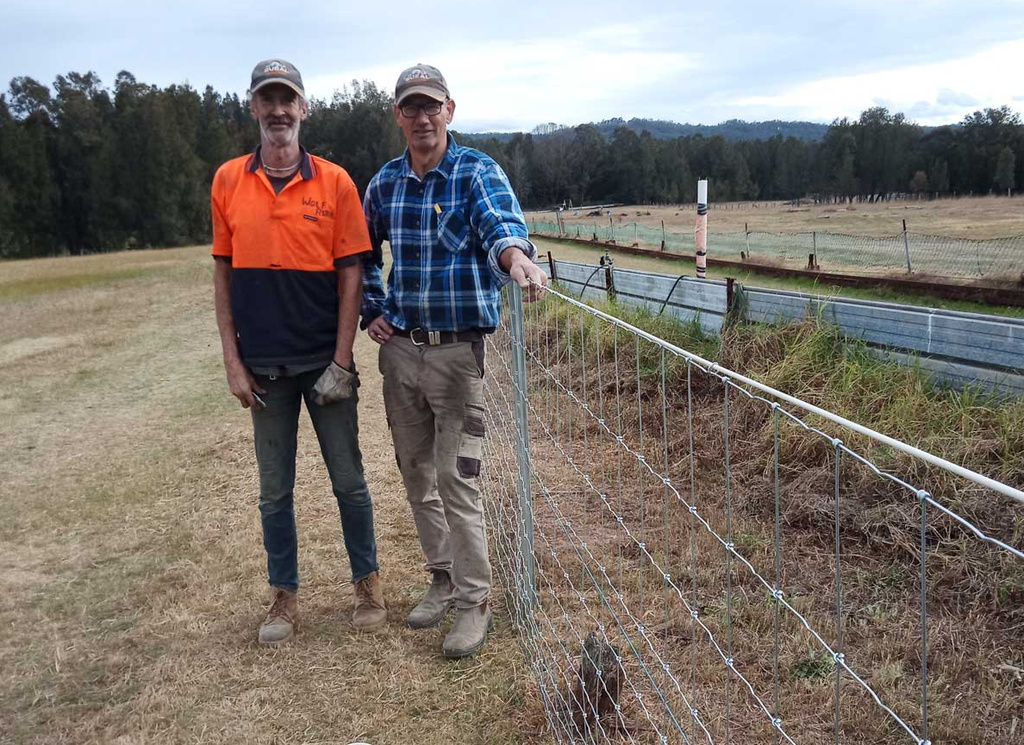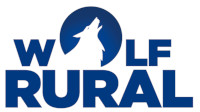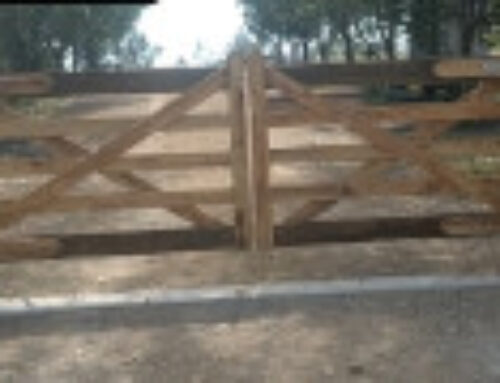
Wolf is pictured above on the right.
Where do you think the fencing industry is heading?
In rural fencing I think we’re slowly seeing the demise of the traditional hardwood timber fence being replaced more and more by all metal fencing, concrete posts or hybrid solutions.
What’s the best thing about FENCiT?
It’s great to have a fencing group and the two main issues I hope FENCiT will be able to address are:
– Moving fencing towards becoming a recognised trade and with that a apprenticeship or at least a traineeship for people entering the industry.
– Developing standards for the different types of fences we supply and install so we don’t end up with issues like we’re seeing in the building industry at the moment.
What has been your most interesting fencing job?
Fencing a rifle range in Seaham where the range is setup so that people shoot into a mountain range in front if them.
Because of a change in regulations they had to add a bullet drop zone of about 5 acres on either side.
Fencing these was a real challenge since the closer we came to the mountain the steeper it got until you could barely walk.
All the gear and materials had to be carried in up to 400m.
Finding the surveyor pegs or GPS coordinates was also a real challenge.
Total length of the fence was about 7km because we also had to redo the fence along the ridge.
WOLF SKAFTE-ZAUSS, the owner of Wolf Rural Fencing in Dungog New South Wales, talks with THE FENCE about his fencing business.
How did you get into the fencing industry?
My previous business, selling door hardware online out of a warehouse in Dungog had failed and I was looking for something outdoors and manual.
I started a rural handyman business and that developed into doing rural fencing within a 12 months period.
What is the most rewarding thing about your fencing work?
The physical and mental challenges of rural fencing especially in difficult terrain settings.
Above is an article featured in the FenceIt magazine, which is our industry organisation.
Link to the article is here.


